Since September 2019, international visitors from many countries can easily visit anywhere in Saudi Arabia using the new Saudi eVisa. However, if the visitor is a non-Muslim, he/she is strictly NOT allowed to enter the holy cities of Mecca and Madinah.
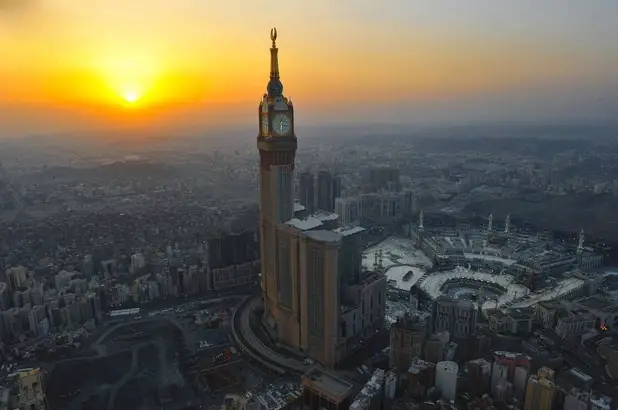
I knew it was the case in the past, but I did not clearly understand the reason why. So, I decided to ask a religious Shaikh and to make enquires at the Saudi Passport Office to find out.
So, why are non-Muslim not allowed in the holy cities of Mecca and Madinah? The legal prohibition is based on a Quranic injunction (9:28) prohibiting entry to non-Muslims to the Haram Mosque. The overriding goals are to prevent overcrowding, maintain peace, security and to provide sanctity for the millions of Muslims worldwide who live and visit there.
Non-Muslim travelers attempting to enter either of the two sites will be stopped at the checkpoints, and if caught removed, fined and even deported.
However, in spite of the ban, there are schools of thought who argue that Non-Muslims should be allowed to enter the Haram Mosques of both cities provided it is only for work, that they are physically clean and that they respect the peace and holiness of the two mosques. See the link for a written explanation.
Mecca and Madinah Are For Muslims Only
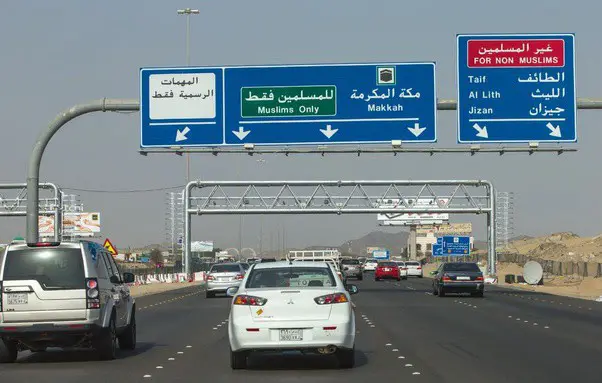
In Islam, the cities of Mecca and Madinah are considered as places of peace, refuge, and sanctuary for Muslims only. Non-Muslims termed Mushriks are prohibited in order to keep it that way.
Both Mecca and Madinah are overwhelmingly religious not tourist destinations for Islamic pilgrimage. Both cities get very overcrowded and the current infrastructure can only just barely meet the demand for food, housing, and services by the millions of Muslims who visit each year.
Opening the city to international tourists and the curious visitors would cause unsustainable stress, congestion, and a host of other problems.
The decision to only allow Muslims is a wise one and above all is made for very practical considerations.
(Zakir Naif explain this well in the above YouTube video)
However, this prohibition often concerns Muslims and greatly upsets those people to whom the ban normally applies.
They argue Muslims are not stopped in places like at the Catholic Vatican and other Christian or Jewish religious sites, so why should they be prevented from going inside in Mecca and Madinah?
On the contrary, a nation is free to impose any law it wishes. For example today, in France and other places, they ban the Islamic niqab for women.
It is a prohibition that is enshrined in secular law and carries a financial penalty.
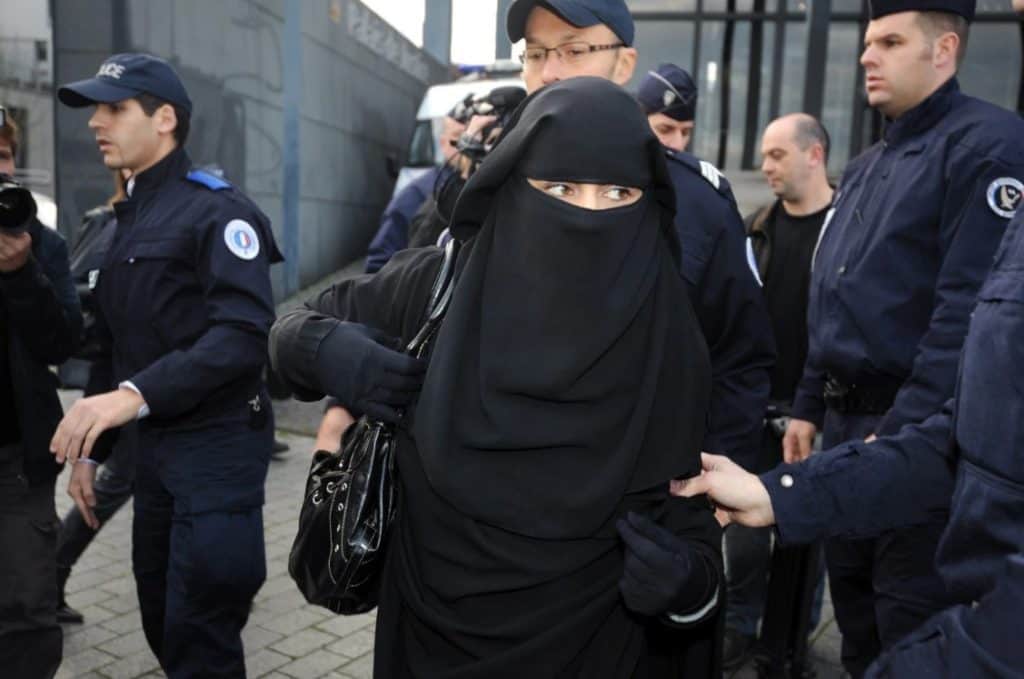
Courtesy Washington Post
Also, in India, there are cantons reserved only for specific people and non-Hindus are expressly not allowed into Hindu temples. (See video above of Zakir Naik)
In the case of Saudi Arabia, it is bound to act according to the principles and injunctions as set out by Allah (SAW) in the Holy Quran. The basis of Saudi law is Islamic Sharia and the government acts accordingly.
Chapter 9 of the Holy Quran called Al Tawbah, Verse 8 clearly prohibits the movement of nonbelievers in and around the cities of Mecca and Medinah in Saudi Arabia. Specifically, the ban is on the Mushrikeen or polytheists.
What Does It Mean To Be Mushrikeen?
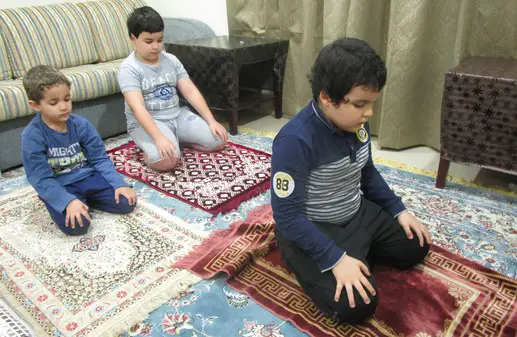
In essence, a Mushrik is a polytheist. It is someone who believes in, prays to and ascribes the attributes of Allah (One God) to anything or anyone who is clearly not.
A person who rejects the notion of the one God Allah and believes in a multiplicity of Gods is considered a Mushrik.
For example, Hindus believe that Brahma is one and many. Also, 80% of Christians believe in the Trinity that God is three equal and eternal persons in the form of God the Father, God the Son and God the Holy Spirit.
The very fact that the Mushrik believes and acts on the basis of polytheism makes him/her a Mushrik and in effect spiritually Narjis (unclean) in the eyes of Allah.
It is NOT the case that he/she is unclean in the physical sense but only in the spiritual sense.
Due to not believing in the oneness of God (Tawheed) and by associating attributes of the one God to anything other God than that of Allah he/she has become unclean in the spiritual sense of the word.
In Verse 28 of the Chapter Al Tawbah, Allah says that the Mushrikeen are Najisoon (unclean) and so should not be allowed to approach the Haram Mosque.
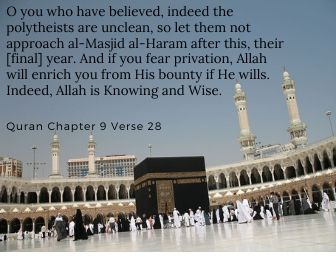
What Does Unclean (Najis) Actually Mean?
In Arabic, the term Najis نجس is not reserved exclusively for non-Muslims. It also means impure when applied to Muslims. Actually, a Muslim is Najis after he/she has urinated and/or defecated.
In this state of temporary impurity or Mutanajis, as it is termed in Arabic, a Muslim cannot perform any of the five compulsory Islamic prayers.
He/she must first perform a ritual ablution (Wudhu) to bring themselves into a state of ‘Taharah’ or ritual purity.
There is a SECOND meaning to the term impure (Najis) which in Islamic law are the things that are PERMANENTLY impure. No amount of washing or ritual ablutions can ever make them clean. They can NEVER be pure (Taharah) again.
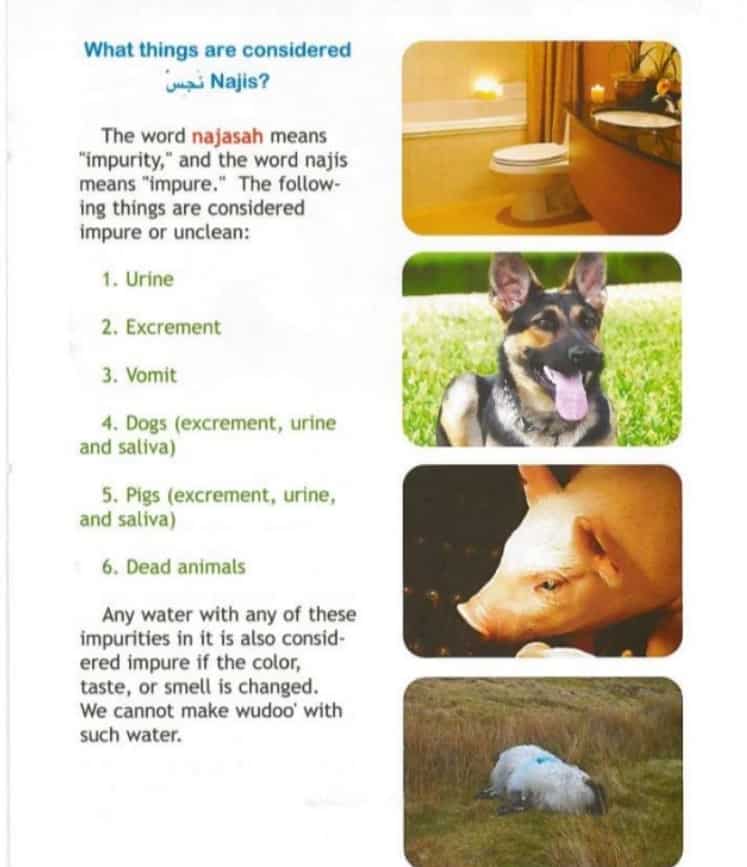
They also include:
- Beer, Wine & Alcoholic Drinks
- Dogs
- Pigs and Swine
- Dead Animals (i.e. roadkill)
- Urine
- Vomit
- Blood
- Excrement
- Milk of Haram Animals
- Dead Bodies
The list above represents the things that cannot be purified. They are considered Najis in their essence. Ritual washing can never make them pure (Tahr) again.
The exceptions are wine which becomes pure when it is changed to vinegar and animal hide when it is tanned.
What Is Spiritual Purity (Taharah)?
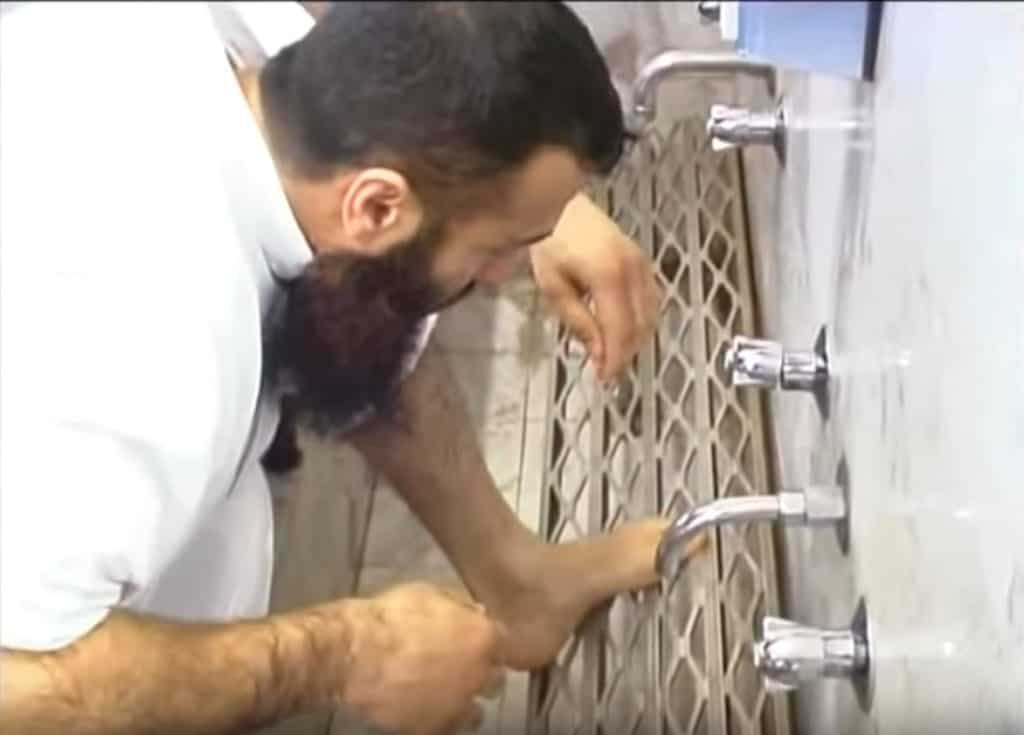
Coming into physical contact with things that are impure Najis also makes a Muslim temporarily impure (Najis). After handling any of the above things in the list, he/she must wash and return to a state of (Taharah) before prayers (Salat) are conducted.
For example, a Muslim woman on her periods (menstruation) is Najisa or impure until her periods have ended. She cannot pray (salat) nor handle the Holy Quran unless she wears gloves.
However, as soon as the last drop of blood has fallen, she can then take a shower, perform ritual ablution (Wudhu) by which time she has entered into a state of ritual purity (Taharah).
Only now is she allowed to perform any of the five daily prayers.
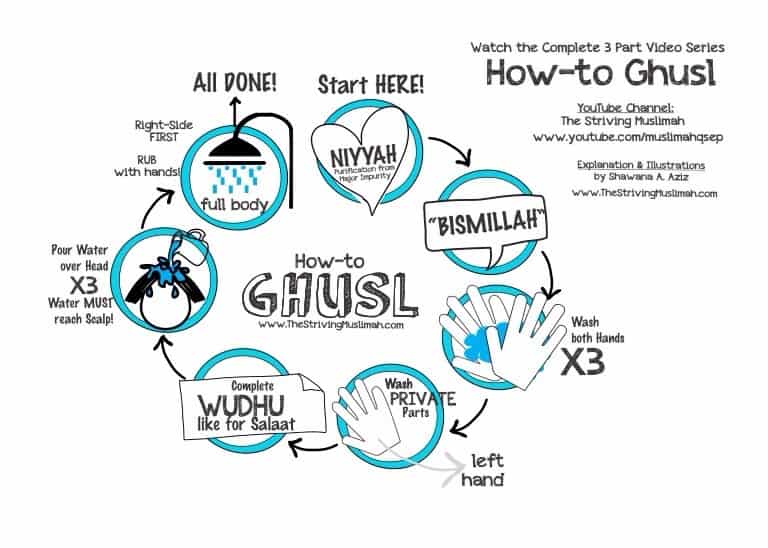
Najis Does Not Necessarily Mean Dirty
Najis does not necessarily mean a person has a dirty body. After taking a hot shower, anyone, of course, would physically be very clean.
Also, it DOES NOT MEAN that when Muslims touch or shake hands with a non-Muslim that they become impure Mutanajis. That IS NOT the case.
The issue of being Narjis is specifically because of the fact that he/she does not believe in the One True God Allah, more, that they attribute to others (people and things) that properly belong to God, Allah.
The ban on non-Muslims entering Mecca and Madinah is based on beliefs, practices and NOT about being physically dirty or anything related to matters of hygiene.
The matter is simply a question of faith or Aqeedah.
What Are The Boundaries of Prohibition?
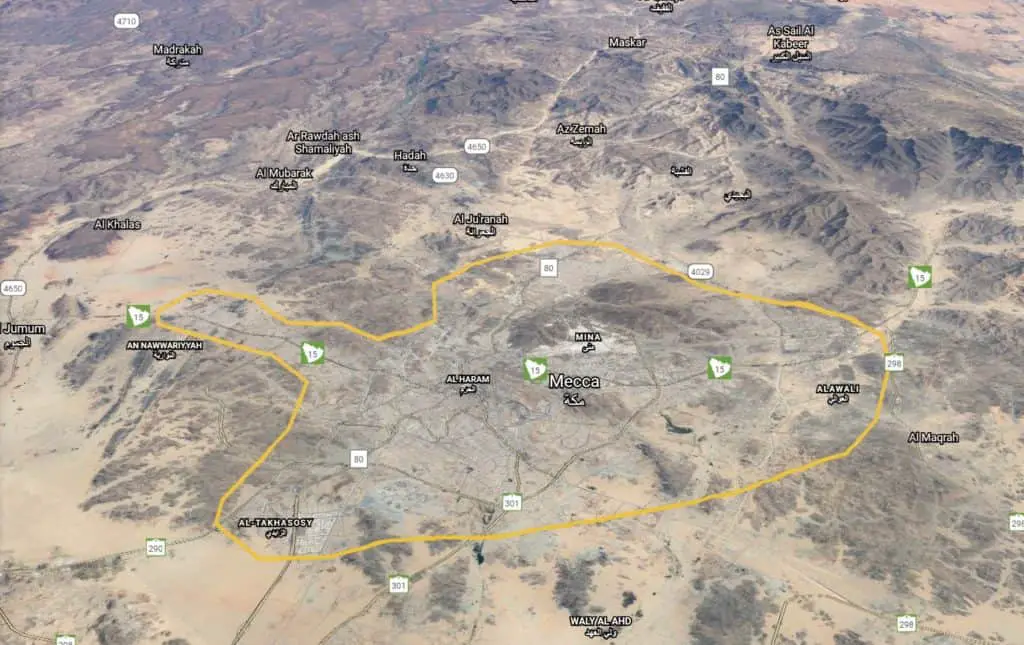
The prohibited areas in Mecca and Madinah which are out of bounds for non-Muslims include the city center and a distance of between 20-25 km from the Haram Mosque in each city to the Haram border in every direction.
In Mecca, there are six main roads leading into and out of the city of Mecca, three from Jeddah, two from Taif and one from the South of Saudi Arabia.
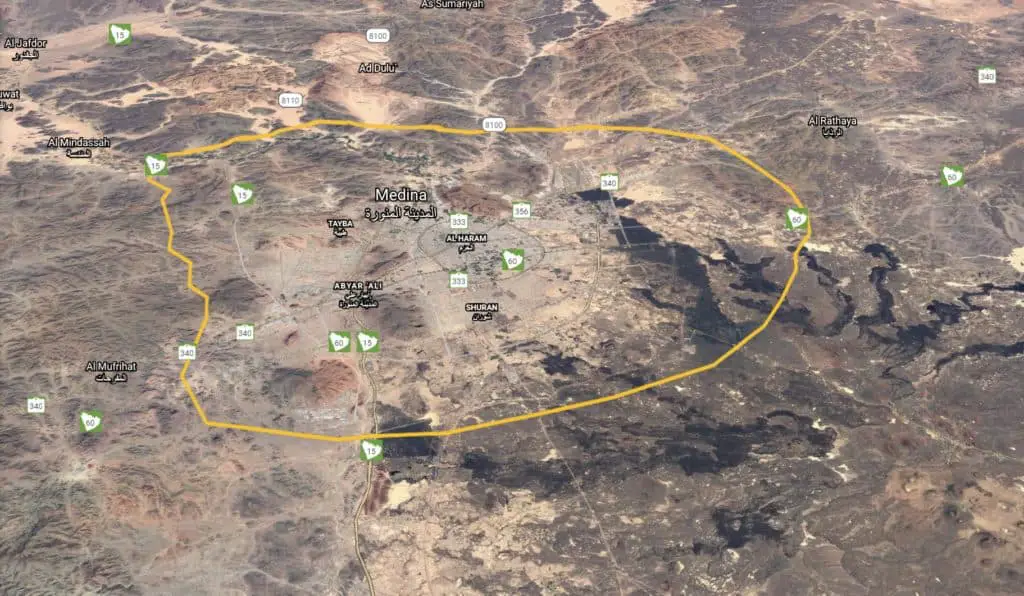
In Madinah, nine major roads lead in and out of the city, three from the East, one from the North and four from the South.
At the borders of both cities on the major routes, there are police checkpoints. They are manned by the Saudi traffic police.
Here is where they check passports, permits and ID cards of drivers and passengers entering the two cities.
Outside of the pilgrimage, Hajj time city residents, all Muslims can enter Mecca and Madinah.
However, during the Hajj season, Mecca is closed to EVERYONE except residents and Muslims with special Hajj permits (Tasreeh) are allowed in and out of the city.
What Would Happen If A Non-Muslim Tried To Enter Mecca?
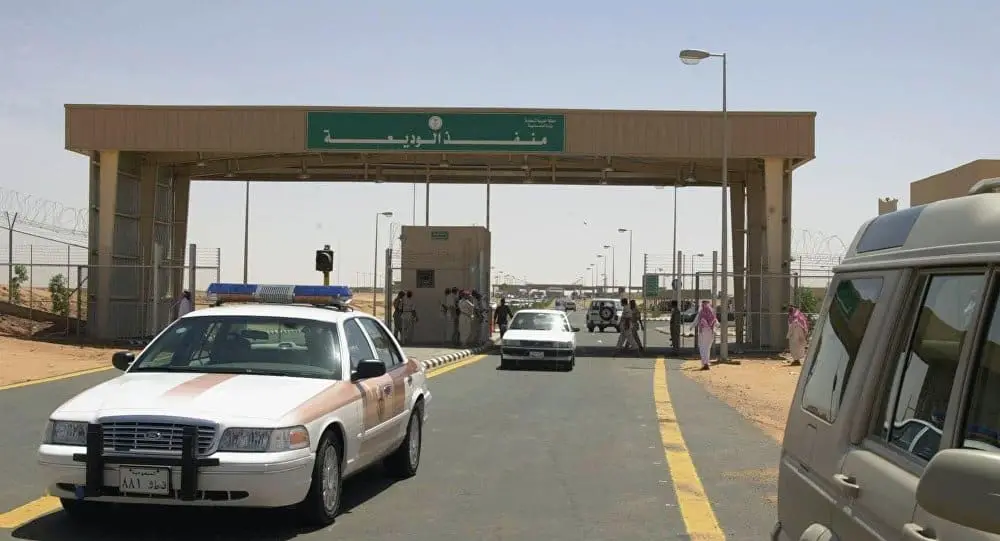
In the past and today, non-Muslims do try to enter the two holy cities. They are not allowed to fly into Madinah airport, so they try their luck by driving up to the checkpoints that are manned 24 hours a day at every main road into the two cities.
If you are stopped, you must show your passports, visas and ID cards. You will be asked many questions and if the police have a doubt, they will not allow you through until they are satisfied that you have full permission.
They do this to everyone, not just non-Muslims.
The Traffic/Haram Mosque police are very active and the passports, Iqamas and IDs of every driver and passenger are checked. Since the implementation of the Saudi tourist eVisa, and with the massive influx of visitors to the kingdom, officers are being especially vigilant to stop those who should not be there.
There are signposts along main routes warning Non-Muslims NOT to try to enter through the checkpoints. You have been warned!
What Would Happen If A Non-Muslim Enters Mecca and Madinah And Gets Caught?
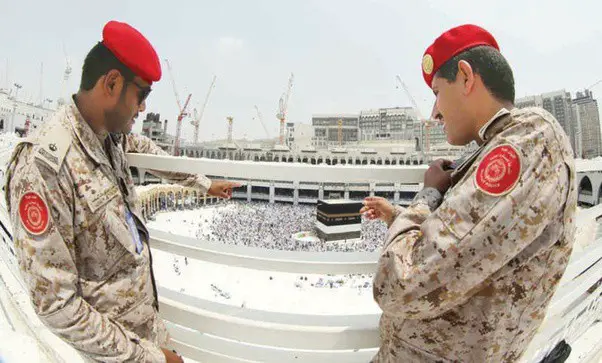
The conditions of the Saudi eVisa and Visitor Visa for non-Muslims clearly state that they are permitted to travel anywhere in the kingdom except into the Holy cities of Mecca and Madinah.
In the event of being caught, you will immediately be asked to leave and escorted out of the city.
Depending also on the circumstances, you could be imprisoned, brought before a judge and detained in a deportation center for weeks at a time. Finally, you will be deported.
There would be a ban on ever entering Saudi Arabia again and this would be held against your name for the rest of your life.
What Can A Non-Muslim Do If He/She Really Wants To Enter Mecca?
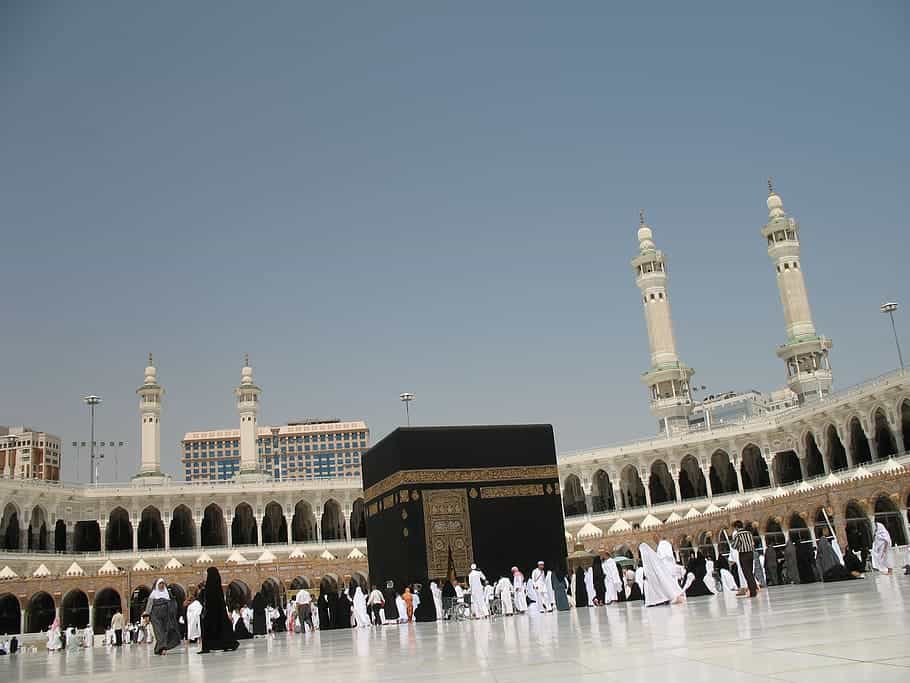
The best advice to those who want to enter Mecca or Madinah is simply for him or her to convert to Islam. This how it is done!
- First, read and learn about Islam
- Visit a Mosque or two
- Get to know other Muslims- Ask Them Questions
- Read Some More
- Learn The Benefits of Becoming a Muslim
- See If Islam Suits You
- Make Sincere Intention To Convert
- Go to An Islamic Outreach Centre
- Tell Them You Are Considering Conversion
- Attend the Centre Regularly so they can know you a Little
- Book your Islamic conversion ceremony
- Make Your Conversion to Islam- Ghusul and Pronouncing The Testimony of Faith (Shahada)
- Change Your Religion in your Passport/Visa or ID
- Enter Mecca/Madinah Freely
- Enjoy and Gain Wonderful Blessings and Benefits now and in the Hereafter
Related Questions
Have Non-Muslims Ever Gained Access to Mecca or Madinah? Yes, I personally, know non-Muslims who out of curiosity entered Mecca. Unfortunately, it meant little to them. Their illegal presence, however, makes them very nervous and upset some Muslims. Click this link  to see how an Isreali man entered and stayed in Mecca in 2017 as reported by the BBC.
to see how an Isreali man entered and stayed in Mecca in 2017 as reported by the BBC.
Will Mecca and Madinah ever be open to Non-Muslims in the future?
The chances are very low indeed it will ever happen. The law concerning Non-Muslims will remain because it is based on a Quranic injunction (9:28). Additionally, Muslims would object strongly if it happened! There are many beautiful, wonderful cities and areas to visit in Saudi Arabia. In any case, Mecca and Madinah would not hold much interest to anyone not interested in the Islamic religion.
References:
- Wikipedia- Religious Segregation

- Arab News –Why Non-Muslims Cannot Visit Makkah

- Quran- Surat Al Tawbah (9:28)

- Wikipedia-Najis

- Islam Q & A –What is Shirk

- Quora- Why are only Muslims allowed into Mecca

